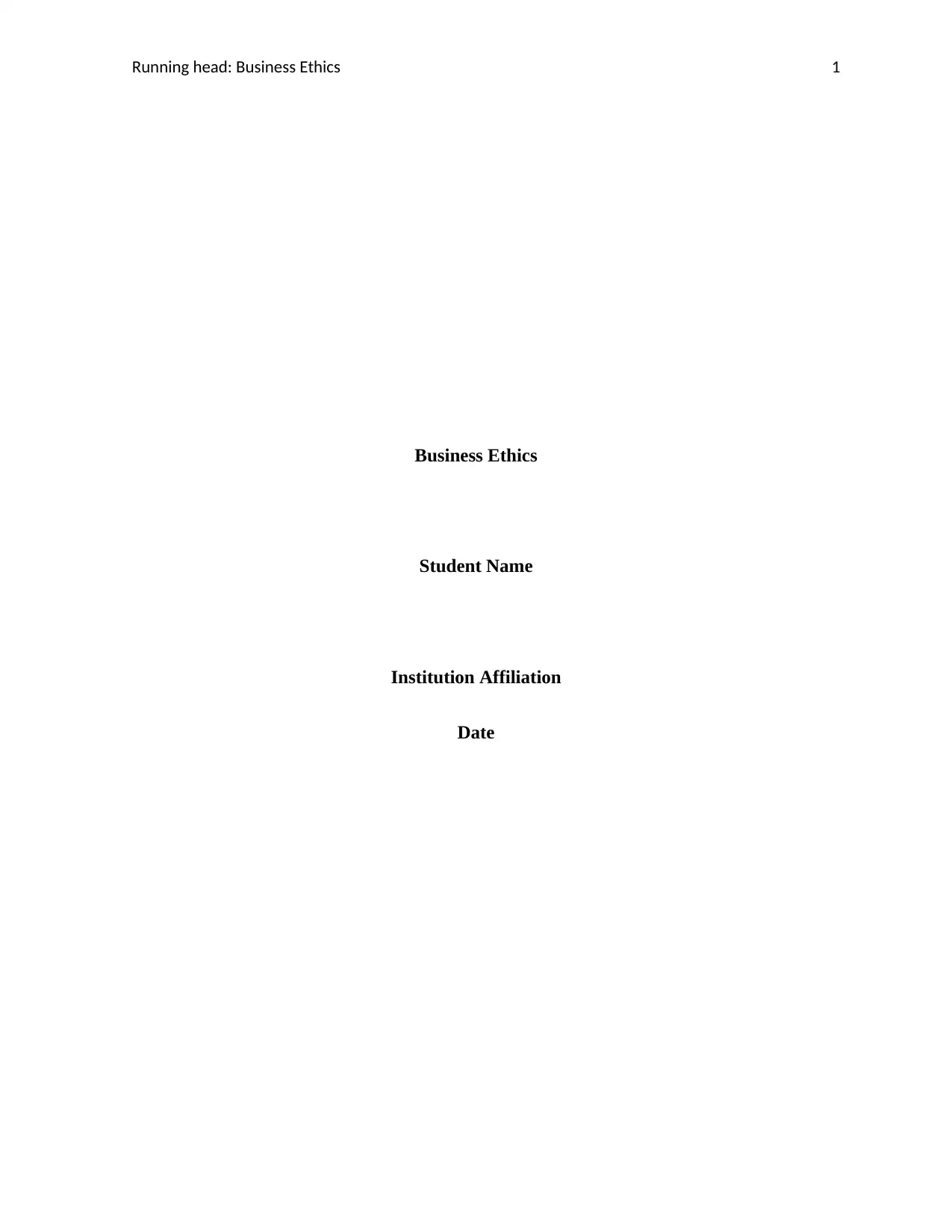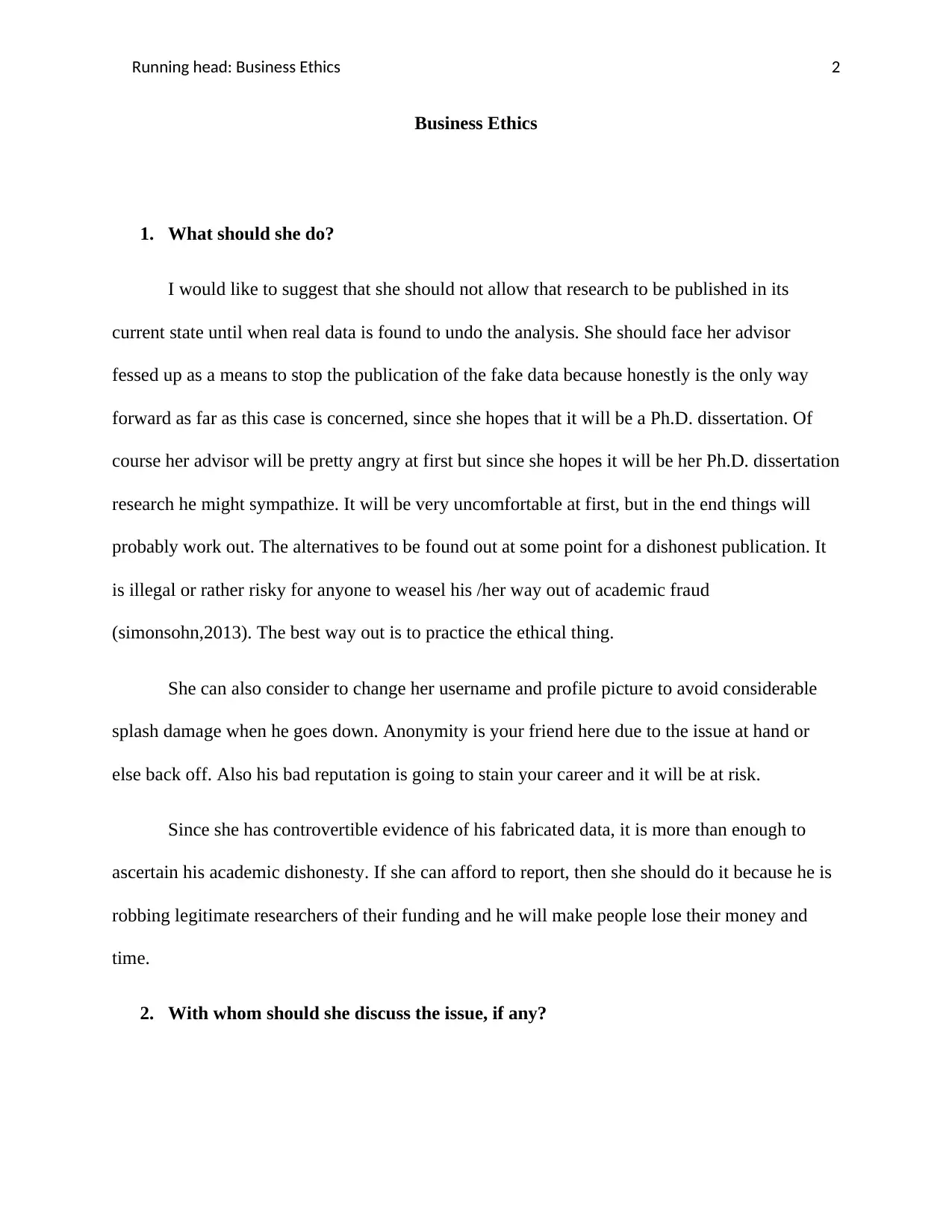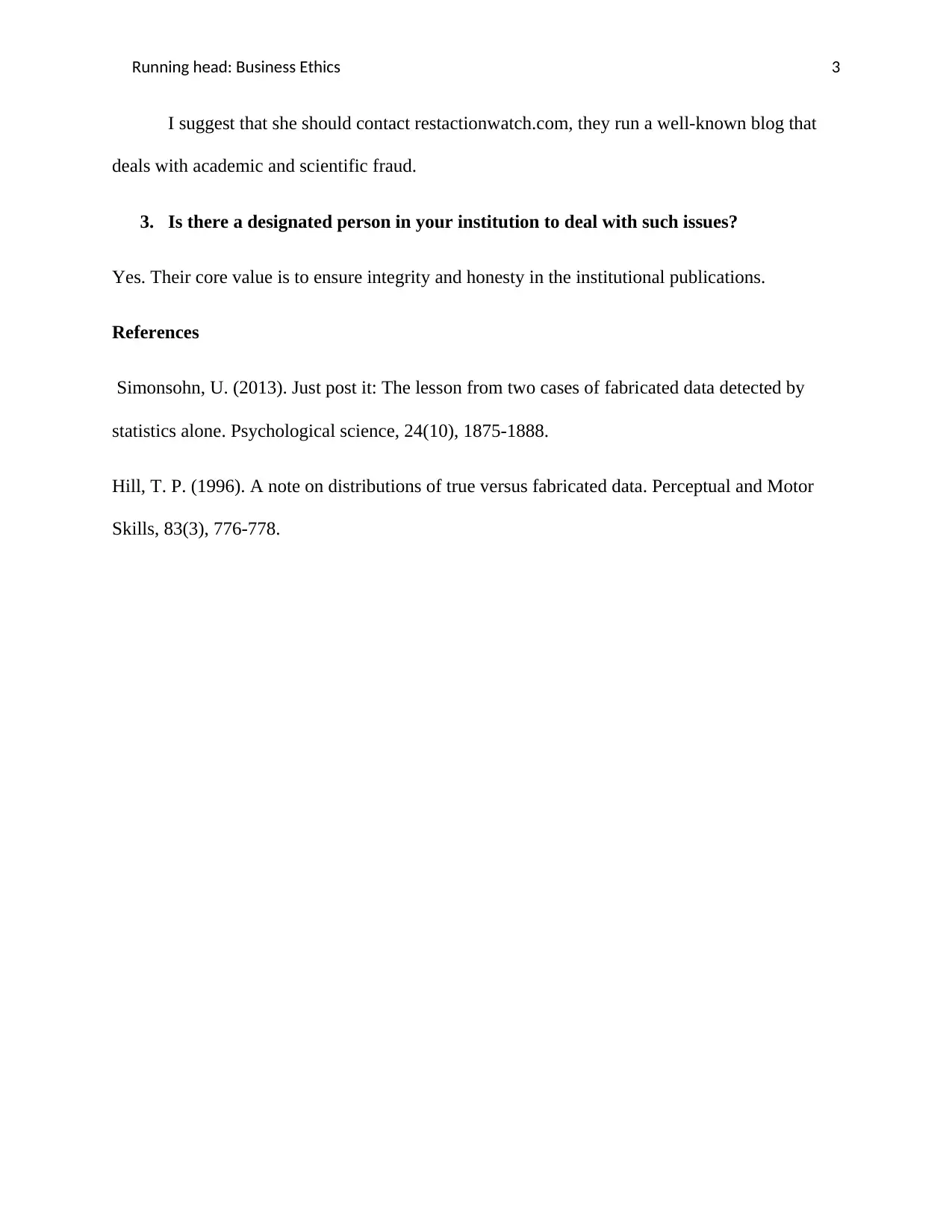Business Ethics: Case Study, Solutions, and Analysis
VerifiedAdded on 2020/05/08
|3
|418
|94
Report
AI Summary
This report presents a case study in business ethics, focusing on a scenario involving potential academic fraud. The analysis centers on a researcher who has concerns about fabricated data. The report suggests that the researcher should not allow the publication of the research until real data is found, and to be honest with the advisor. It also suggests reporting the issue to the appropriate authorities. The report examines the ethical implications of the situation and provides recommendations for the researcher's actions, considering both the immediate consequences and the long-term impact on her career and the integrity of the research. The report highlights the importance of ethical behavior in academic research and the potential repercussions of unethical actions. The report references the work of Simonsohn (2013) and Hill (1996) to support its analysis and recommendations.
1 out of 3










![[object Object]](/_next/static/media/star-bottom.7253800d.svg)